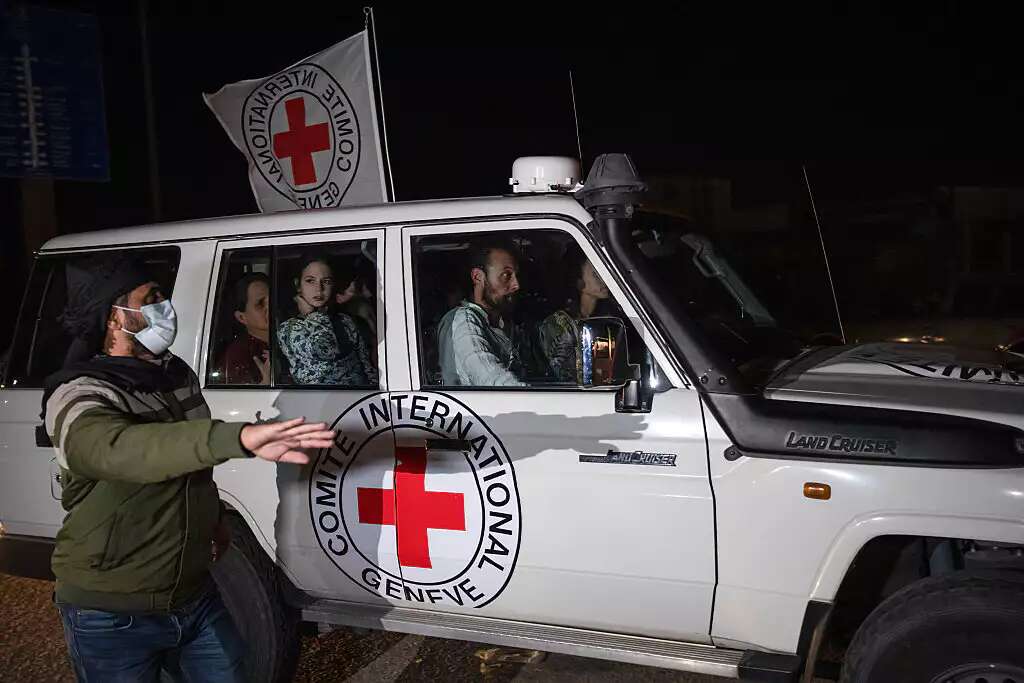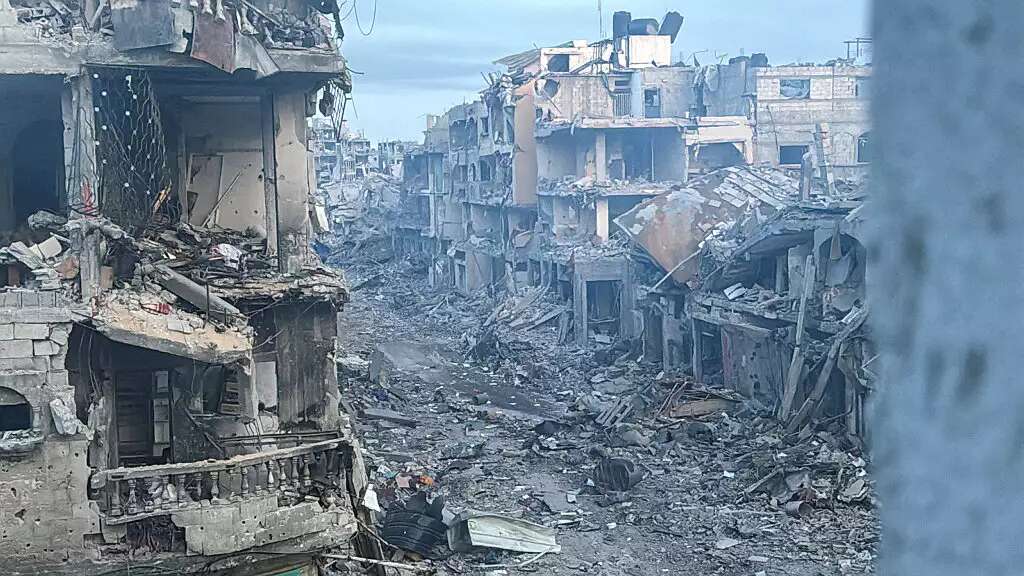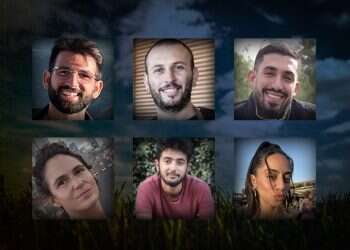A special report to be submitted to the United Nations outlines the abuse suffered by hostages released from Hamas captivity in Gaza and its impact on their physical and mental health.
Prepared by the Israeli Ministry of Health, the report provides detailed accounts of neglect, torture, and humiliation endured by hostages. It also examines the medical and psychological toll based on interviews with medical teams who treated the hostages upon their return to Israel.
The second section presents rehabilitation models tailored for former hostages, based on information collected from community healthcare providers and mental health professionals offering ongoing care. To preserve anonymity, all names in the report have been changed.
Reader discretion is advised.

Part one: torture and abuse
Forced sexual acts and abuse of minors
The report details abuse against children aged 0–18, with identifying details omitted to protect their privacy. Two teenage boys held together reported to a hospital doctor that they were tied hand and foot, beaten daily, and forced to perform sexual acts on one another. Their captors also sexually abused them, including stripping them naked, inappropriate touching, and flogging their genitals.
Two younger children bore similar burn marks on their lower limbs. One child described being intentionally branded with a heated object—a traumatic event corroborated by adult hostages held alongside him.
Sexual and physical violence against women and men
A woman held captive for 55 days described being sexually assaulted by a Hamas terrorist at gunpoint. Many women, both young and elderly, were forced to strip naked in front of their captors and other hostages. Some reported inappropriate touching and being tied to beds while their captors watched them.
One elderly woman, injured during her abduction, was held alone in a dark room for 30 days, tied up and unable to move. She was given minimal food and water and received no medical treatment for her injuries. Other elderly women recounted similar experiences of starvation and violence.
Male hostages faced extreme physical abuse, including prolonged starvation, severe beatings, branding with galvanized iron, hair-pulling, extended isolation in locked rooms with minimal sustenance, and being denied access to toilets, forcing them to relieve themselves in place.

Torture and denial of medical care
Hostages were systematically denied medical care. Acute injuries from the October 7 attacks—including fractures, shrapnel wounds, cuts, and burns—received little or no treatment, often resulting in infections, deformities, and the need for further surgeries upon release.
Medical neglect also worsened chronic conditions, such as heart failure, diabetes, kidney disease, and thyroid dysfunction. Women reported excruciating pain when bandages were replaced or wounds were treated without anesthesia, describing the pain as unbearable.
At least one case was documented in which Hamas released a video of a hostage who died due to a general medical deterioration. In another case, a hostage was denied access to respiratory support equipment during captivity. For several elderly women, untreated hypertension and hypothyroidism resulted in severe health deterioration, requiring urgent and life-saving treatment upon their return.

Captors fed hostages mainly before release
Nearly half of the returnees reported deliberate starvation during their captivity. They described receiving inadequate nutrition, often noting constant hunger.
Their diets consisted of small amounts of rice or pita, sometimes with a side of hummus or cheese. Protein sources like eggs, poultry, or meat were nearly nonexistent, and fruits and vegetables were rarely provided.
The captives noted that their captors fed and even weighed them before release to improve their appearance and weight ahead of their return to Israel.
Captives witnessed the murder of fellow hostages
The abduction of children, women, men, and the elderly from their homes is a profoundly traumatic event. In many cases, abduction followed the murder of a family member or close friend. Some children were taken without their parents, sometimes after their parents were killed.
Captors also sowed destruction in communities, forcing hostages to witness their homes burning, along with acts of rape and looting. Hostages were transported to Gaza in open vehicles alongside the bodies of those killed in the attack. Some described being transported on motorcycles or open truck beds, paraded through city streets as crowds beat them with bare hands, sticks, or stones, and humiliated them.
According to the returnees, hostages were held in multiple locations. They were often exposed to verbal, physical, and sexual violence. The conditions of captivity were deliberately designed to create an environment of torture, harm them psychologically, break their morale, and ease control over them. Captivity was marked by significant trauma-inducing factors: separating family members, isolating children from parents, immobilization, random transfers, and exposure to violence and abuse.
Some hostages even witnessed the killing of fellow captives, deepening feelings of helplessness and despair. Captivity also involved isolation, poor sanitation, severe medical neglect, sleep deprivation, starvation, sexual violence, physical abuse, threats, and brainwashing, including exposure to propaganda videos meant to demoralize and break them.

Part Two: effective rehabilitation models for returnees – insights from the field
Medical and psychosocial treatment for returnees followed two distinct stages: the initial intensive phase in dedicated hospital wards for hostages and the ongoing phase in the community.
In hospitals, returnees received professional medical and psychological care characterized by humanity and personalized support for both the individual and their family.
Upon transitioning to community care, significant gaps emerged, including difficulties maintaining medication regimens, lack of access to certain services like dental care, and a reduction in the intensity of the support system, especially for families in secondary and tertiary circles.
Medical teams, including internal medicine specialists, psychotherapists, and psychiatrists, focused on the interplay between physical and psychological symptoms. Treatment emphasized acknowledging the depth of suffering and rehabilitation challenges while fostering hope.
Despite some improvements in anxiety reduction and coping abilities, the fear of symptom recurrence remains real. Moreover, the psychological impact of captivity extends beyond PTSD, involving complex issues such as loss of trust in others, damage to relationships, and harm to one's sense of self.




